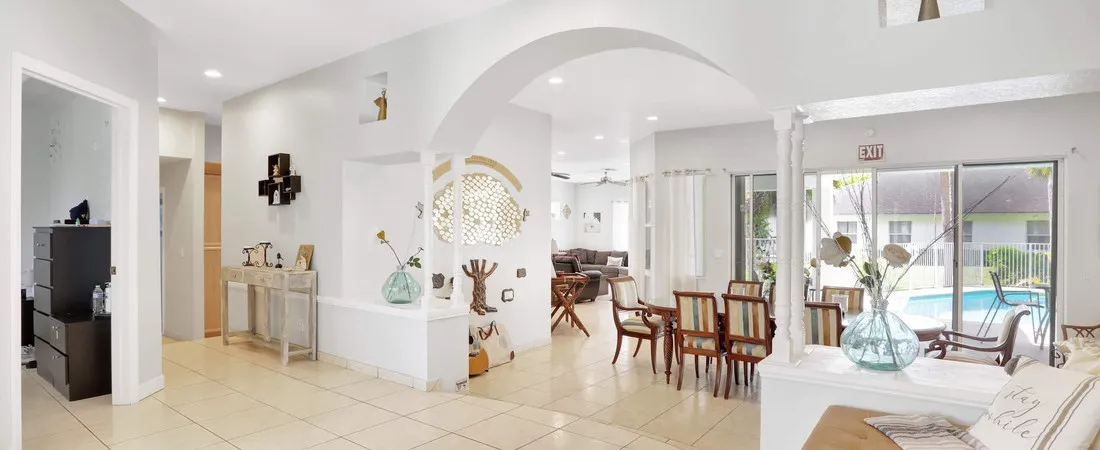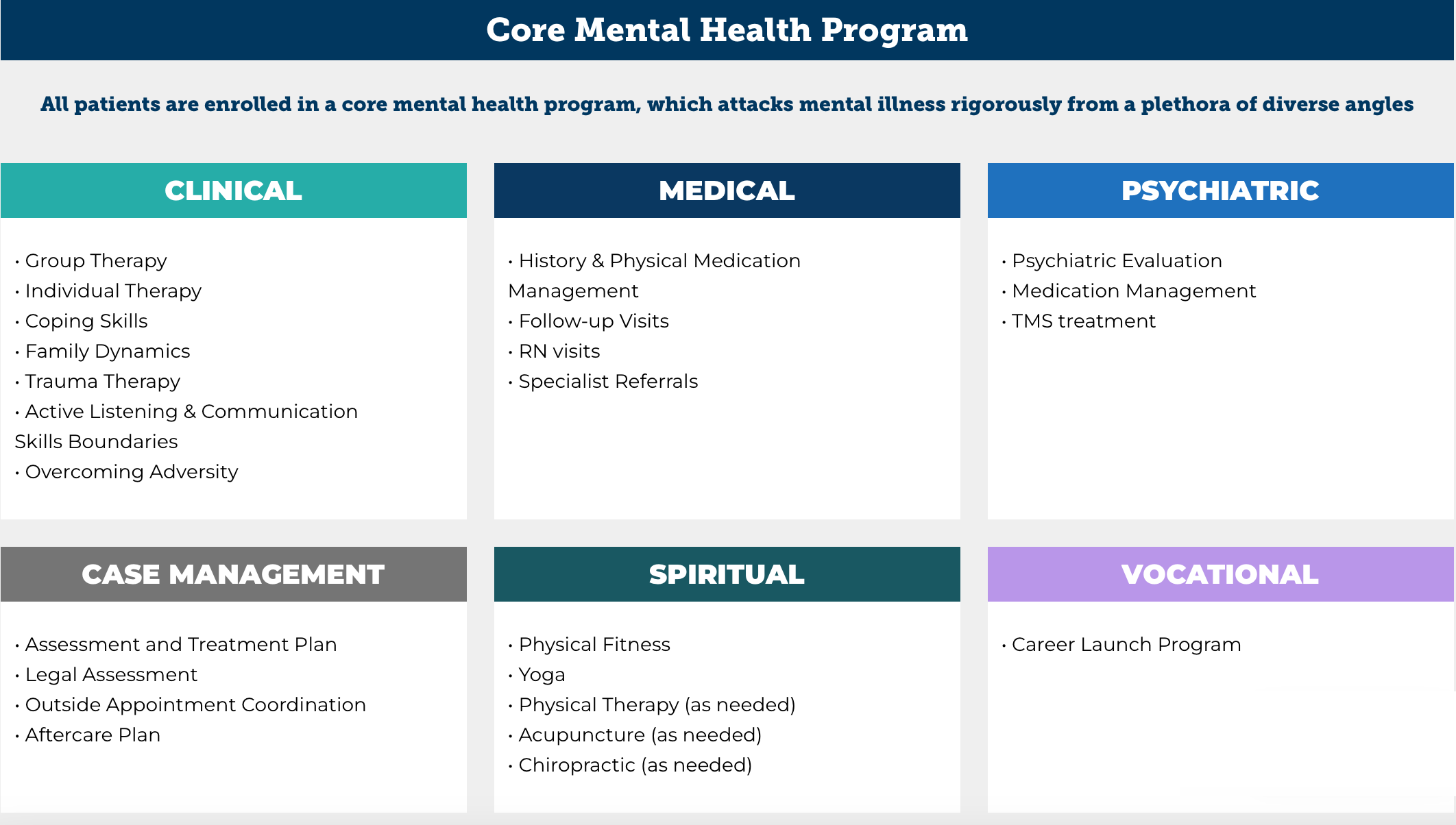Do Long-Term Residential Facilities Offer Dual Diagnosis Treatment?
Yes, long-term residential psychiatric facilities specialize in providing dual diagnosis treatment, recognizing the intricate relationship between mental health and substance use disorders. This comprehensive approach ensures that co-occurring disorders receive targeted interventions and support. The structured environment of these facilities allows for a coordinated, integrated treatment plan, addressing the unique complexities of comorbid conditions.
Residents engage in therapeutic modalities, counseling, and evidence-based practices designed to promote lasting recovery and equip them with the necessary tools for managing both mental health and substance use concerns simultaneously. Creating a supportive community, this holistic approach nurtures a space to navigate their journey toward wellness within a customized and empathetic framework.
60-Day Residential Mental Health Treatment Process
The 60-day residential mental health treatment is a structured journey incorporating therapies, counseling, and personalized interventions. After initial assessments, tailored treatment plans focus on self-reflection and skill-building through activities and counseling. This duration allows a deeper exploration of underlying issues, fostering a foundation for sustained mental wellness.
Costs can vary significantly depending on the facility, the specific services provided, and more. On average, a 60-day residential mental health treatment program can range from $12,000 to $60,000. It’s crucial to check with individual facilities for precise cost details, considering that insurance coverage may help offset some expenses. Exploring financial options and discussing payment plans with the facility can also contribute to informed decision-making regarding the investment in one’s mental health journey. Contact us today to learn more about our long-term residential treatment programs.
90-Day Residential Mental Health Treatment Process
A 90-day residential mental health program begins with an assessment followed by a personalized treatment plan to address individual needs. Treatment will foster self-reflection, skill development, and emotional well-being through therapeutic modalities, counseling sessions, and customized interventions. This extended program allows for a deep exploration of underlying issues and for developing effective coping strategies for long-term mental wellness.
Expenses for a 90-day residential mental health treatment program can range widely, typically averaging out to $36,000. Actual costs depend on factors such as location, facility amenities, and specific services offered. It’s crucial to consult with individual facilities for precise cost details and explore potential insurance coverage to mitigate expenses associated with this extended mental health journey. Call 877-958-9212 to schedule your free assessment and discuss your treatment needs.
6 Months to 2-year Residential Mental Health Treatment Process
A 6-month to 2-year residential program offers an extended, comprehensive path to recovery. The process initiates with thorough assessments to tailor treatment plans, encompassing a range of therapeutic modalities, counseling sessions, and personalized interventions. Long-duration therapy centers encourage a deep exploration of root causes, nurturing enduring emotional well-being and equipping individuals with resilient coping mechanisms.
Extended psychiatric residency from 6 months to 2 years can entail a significant financial commitment. Estimated costs may range from $10,000 to $60,000 monthly or more, depending on factors such as whether or not the treatment center is considered luxury and the specific services rendered. Consult directly with the respective facilities for accurate cost details and explore potential insurance coverage to help manage the financial aspects of this extended mental health care journey. Call 877-958-9212 now. We can provide accurate, up-to-date cost estimates tailored to your particular treatment needs.
Common Reasons for Long-Term Residential Treatment
Considering long-term residential treatment represents a significant decision with varied reasons motivating individuals. It serves as a dedicated space where challenges, ranging from severe mental health disorders to concurrent disorders, can be addressed with tailored support. Below, we’ve outlined a few common reasons individuals facing diverse circumstances find value and efficacy in the comprehensive approach of long-term residential treatment.
- Severe Mental Health Disorders: Individuals with severe mental health disorders, such as schizophrenia or severe bipolar disorder, may require the immersive, comprehensive psychiatric care provided by long-term residential treatment to address complex needs.
- Chronic Substance Abuse and Mental Health Issues: Long-term residential treatment is often crucial when facing the intertwined challenges of chronic substance abuse and mental health issues.
- Coexisting Conditions: When individuals experience both mental health and substance use disorders simultaneously, a long-term residential setting offers tailored interventions to address psychiatric comorbidity effectively.
- Failed Outpatient Treatments: For those who haven’t experienced success with outpatient care, long-term residential treatment provides a more intensive and closely monitored environment to enhance treatment outcomes.
- Persistent Self-Harm or Suicidal Thoughts: Individuals dealing with self-harm tendencies or suicidal thoughts may benefit from persistent mental health treatment and support available in ongoing residential therapy.
- Complex Trauma and PTSD: Long-term residential treatment is often an ideal route for those struggling with complex trauma and post-traumatic stress disorder (PTSD), providing a safe space for healing and recovery.
- Inability to Function in Daily Life: When mental health challenges significantly impede the ability to function in daily life, extended stay psychiatric services often become essential for rebuilding life skills.
- Lack of Social Support: Individuals lacking a solid support system may find the community and guidance provided in long-term residential treatment crucial for their recovery.
- Stabilization and Medication Management: For those requiring intensive stabilization and medication management, long-term residential psychiatric facilities offer a controlled environment for ongoing assessment and adjustment of treatment plans.
- Therapeutic Intensity: The therapeutic intensity of enduring treatment centers ensures consistent, concentrated interventions, fostering a more profound exploration of underlying issues and long-term residential healing.










